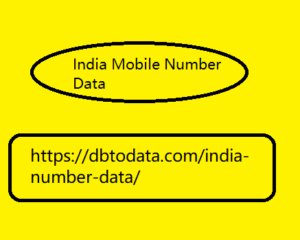Post by account_disabled on Mar 10, 2024 10:55:09 GMT 2
What is a crypto economy An economy based on a blockchain network could guarantee access to credit to anyone who owns a smartphone and would not need central banks and institutions because it would self-regulate thanks to careful programming of its operating mechanisms. But there are enormous obstacles to the optimal functioning of crypto-economies: barriers to entry due to the slow learning curve of the dynamics of the crypto world , but also technological ones such as the speed and costs of transactions on blockchain networks. I don't think that this type of economy will be able to replace the real one, but I am sure that there will be more and more fields of application of its principles, so it is worth understanding something about it (already today all decentralized finance applications work perfectly, among these are the money changers Binance and Coinbase).
Cryptoeconomies are also called tokenomics because the basic unit of value is the token , which is a disruptive India Mobile Number Data element in the design of open networks , because it can incorporate mechanisms to incentivize participants to provide value (developers, investors, users). For Chris Dixon, programmer and investor, the token is a digital primitive , that is, a basic element of Web3 that can be used to represent anything, just as websites were in the original Web. But what is a token? A token can be seen as a code that runs on a peer to peer network of computers (blockchain). Tokens can be of two types, fungible and non-fungible. Fungible tokens Fungible tokens are those that have identical characteristics and are interchangeable (I can exchange one of a certain type with another of the same type). On the Ethereum network the standard that identifies them is ERC20.

These can act as native currency of the network on which they run (e.g. Ether, the cryptocurrency of the Ethereum network, is a fungible token), but since they are programmable they can also have other functions: Equity tokens are tokens that represent ownership of a certain My Buttet and attribute certain rights. They are used to incentivize people to provide scarce resources such as capital, time, computational power. For example, in Uniswap , a decentralized exchange for the exchange of tokens, those with liquidity are encouraged to make their capital available in exchange for equity tokens (which correspond to a percentage of trading commissions); Utility tokens are tokens that unlock functions in a smart contract or in an off-chain system (i.e. outside the blockchain, so they are difficult to enforce). For example, to participate in the Friends With Benefits community and comment on their Discord server you need to have 60 $FWB (their specific token) in your wallet; Governance tokens are tokens that give participation rights in the management of a decentralized autonomous organization (DAO). The types of rights it attributes are described in the code that represents them, the smart contract.
Cryptoeconomies are also called tokenomics because the basic unit of value is the token , which is a disruptive India Mobile Number Data element in the design of open networks , because it can incorporate mechanisms to incentivize participants to provide value (developers, investors, users). For Chris Dixon, programmer and investor, the token is a digital primitive , that is, a basic element of Web3 that can be used to represent anything, just as websites were in the original Web. But what is a token? A token can be seen as a code that runs on a peer to peer network of computers (blockchain). Tokens can be of two types, fungible and non-fungible. Fungible tokens Fungible tokens are those that have identical characteristics and are interchangeable (I can exchange one of a certain type with another of the same type). On the Ethereum network the standard that identifies them is ERC20.

These can act as native currency of the network on which they run (e.g. Ether, the cryptocurrency of the Ethereum network, is a fungible token), but since they are programmable they can also have other functions: Equity tokens are tokens that represent ownership of a certain My Buttet and attribute certain rights. They are used to incentivize people to provide scarce resources such as capital, time, computational power. For example, in Uniswap , a decentralized exchange for the exchange of tokens, those with liquidity are encouraged to make their capital available in exchange for equity tokens (which correspond to a percentage of trading commissions); Utility tokens are tokens that unlock functions in a smart contract or in an off-chain system (i.e. outside the blockchain, so they are difficult to enforce). For example, to participate in the Friends With Benefits community and comment on their Discord server you need to have 60 $FWB (their specific token) in your wallet; Governance tokens are tokens that give participation rights in the management of a decentralized autonomous organization (DAO). The types of rights it attributes are described in the code that represents them, the smart contract.
